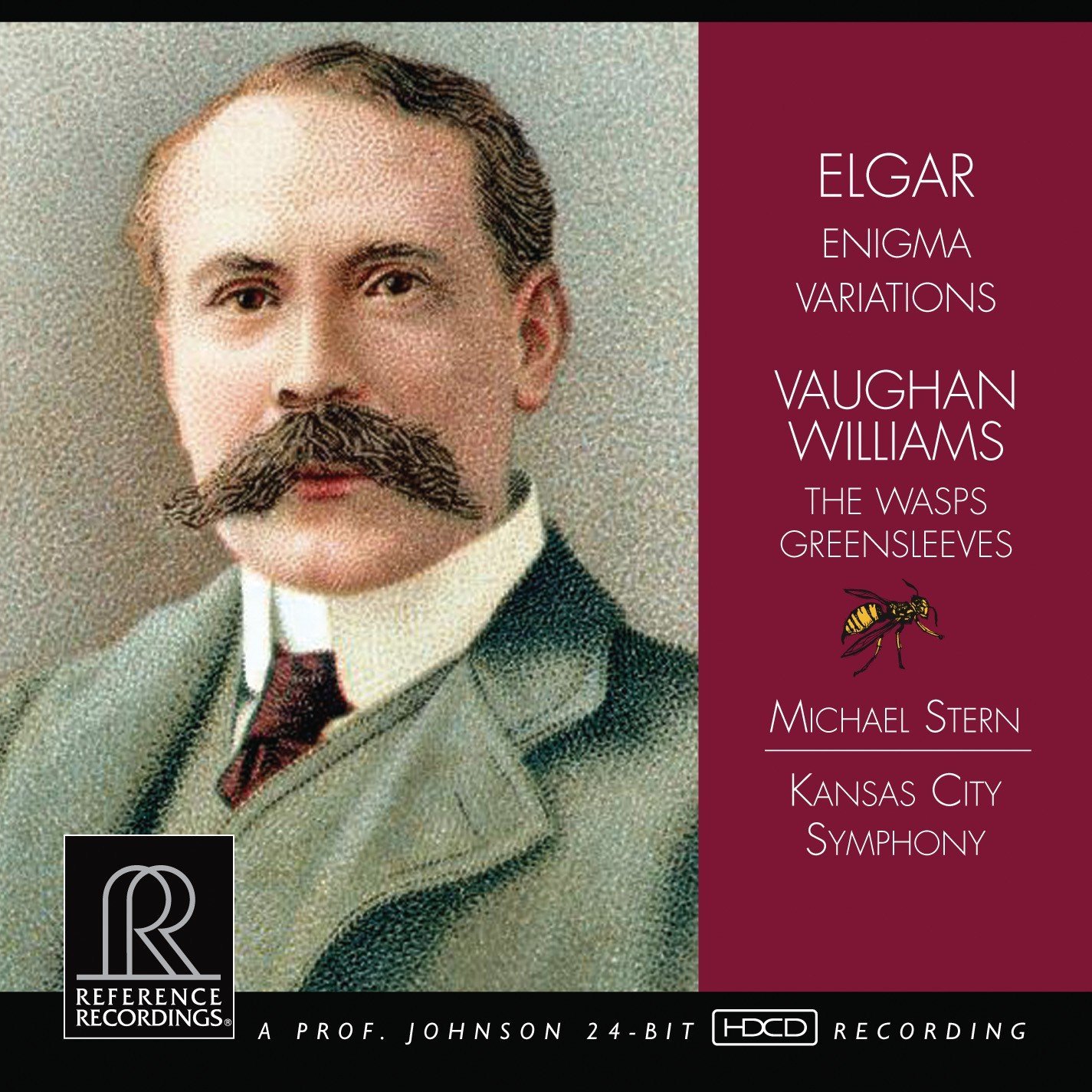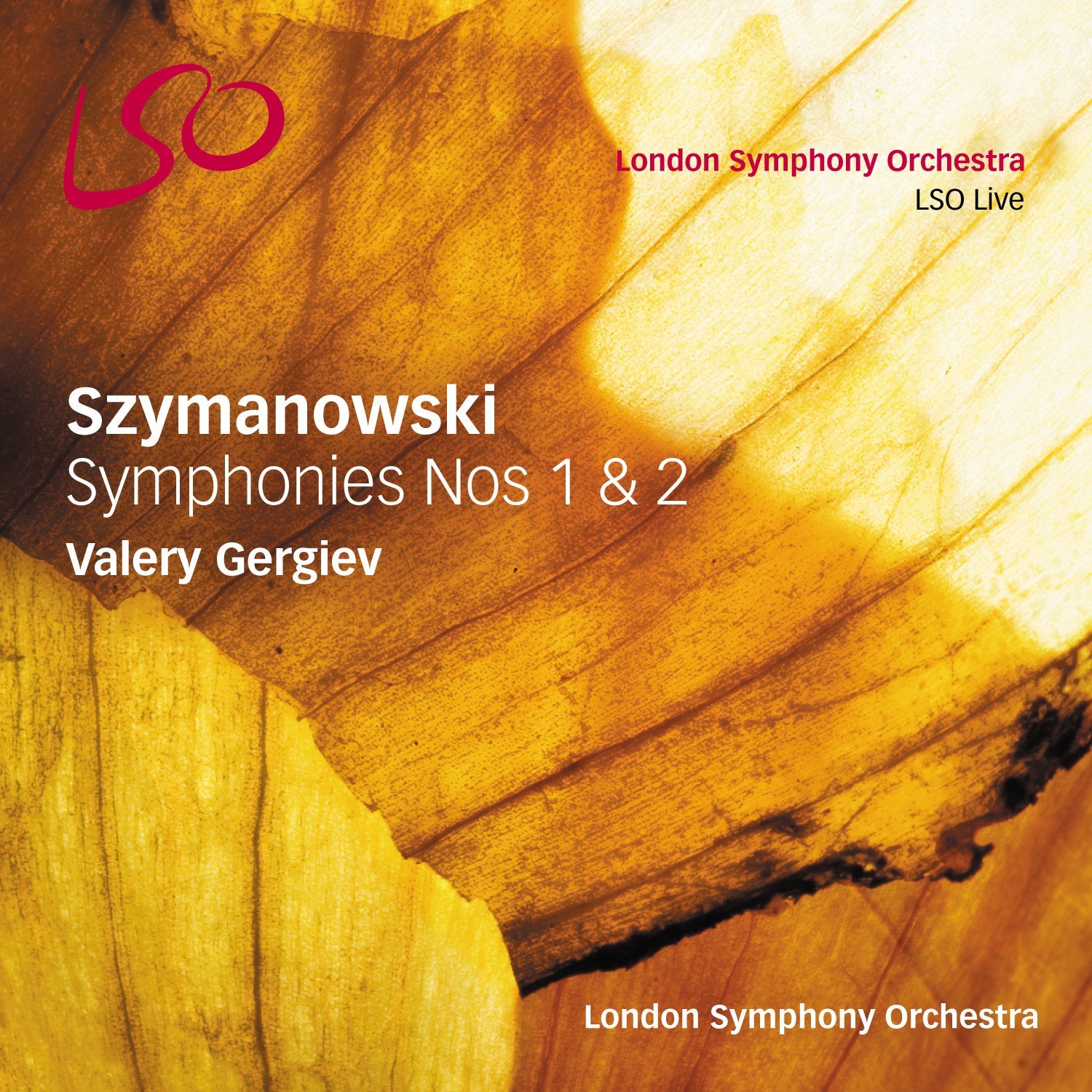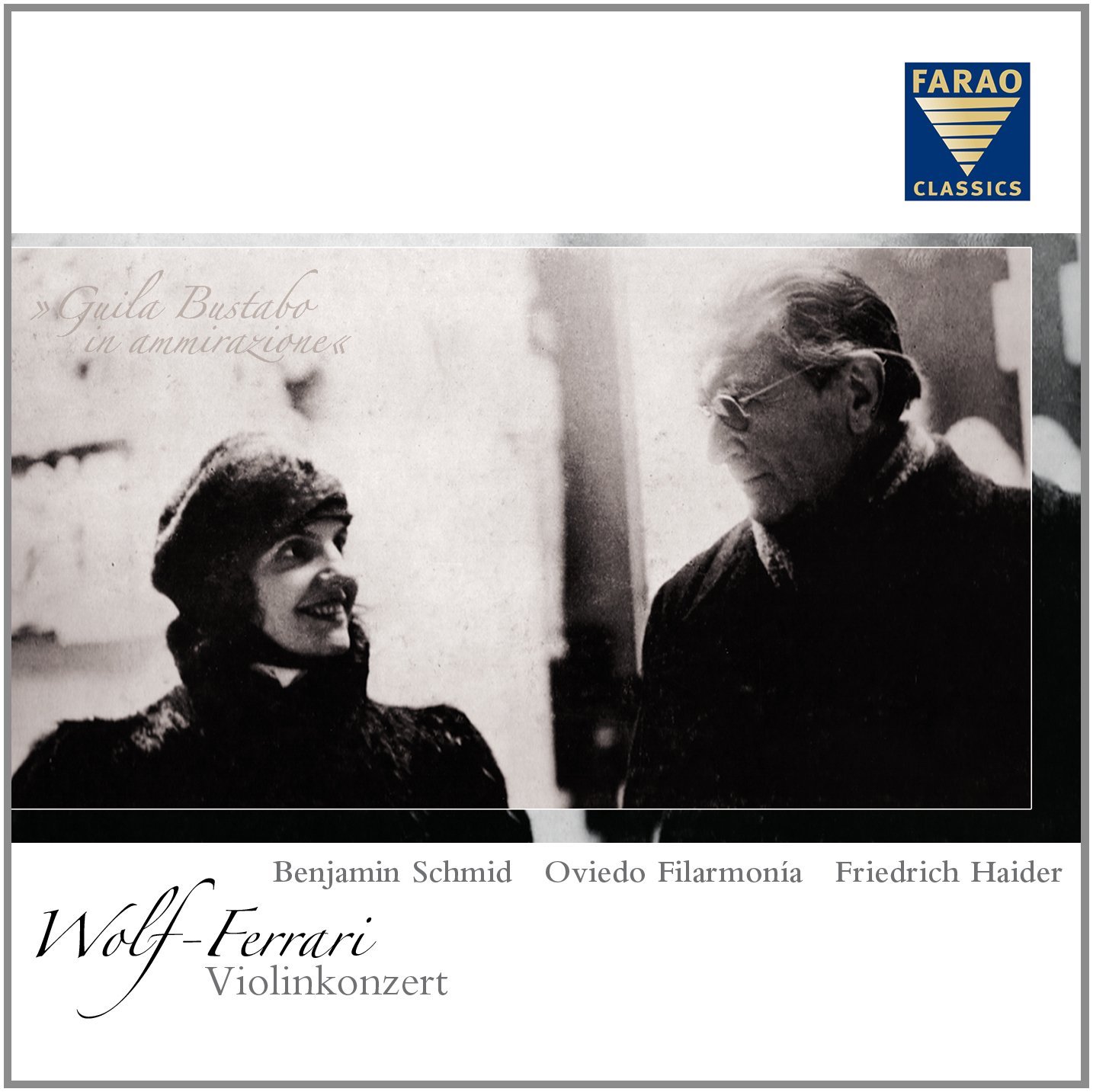
Listen to the tiny second Entracte from Vaughan Williams’s Wasps suite and you’re amazed at how such a beguiling, intoxicating piece could have remained so little known, and at how French the music sounds. Unsurprisingly, it was written after Vaughan Williams had briefly studied with Ravel. The lightness and delicacy are extraordinary, and Vaughan Williams’s typically modal chord progressions sound more Gallic than usual. Delicious stuff, following a reading of the better-known overture which ticks every box – perfectly-judged tempi allow every strand of counterpoint to register, and transparent textures let ripe horn and wind solos sing out. This is an exceptional disc in so many ways. The Kansas City orchestral playing is flamboyant, assured, but always affectionate, and the recorded sound is possibly the most realistic I’ve come across.
The engineering really does serve the music, lending additional colour and warmth to Michael Stern’s Enigma Variations. His reading is full of character, managing to make the piece seem far more than a string of miniatures. You can feel the work grow – the theme’s initial statement slightly aloof and diffident, the heat slowly rising until Nimrod’s Brucknerian swell provides glorious release. Stern finds the necessary mystery in the penultimate variation, and the Finale’s cockiness is lovable rather than arrogant. The organ entry will induce goose pimples. Praising this CD for its outstanding technical qualities shouldn’t detract from some remarkable musical ones too. This is already in my end-of-year Top 10 list.

Szymanowski’s first two symphonies aren’t as distinctive as the two later ones, but there’s much to enjoy here. No 1 dates from 1906-7 and only the outer movements were completed; the composer withdrew the piece after its first performance. What survives are 18 minutes of glowering late-romantic noir; a parade of superheated gestures which are never particularly memorable but have a powerful cumulative effect. It can’t be easy to play, and Valery Gergiev’s LSO sound is technically brilliant, if a little cool emotionally. You can’t help thinking that the analytical dryness of the Barbican doesn’t flatter Szymanowski’s rich orchestral palate. If these players had been in taped in a swimmy church acoustic, the results might have been even more beguiling.
The Second Symphony is a more confident, emotionally stable piece, its structural quirkiness boldly displayed. Szymanowski’s unconventional opening movement is paired with an elaborate sequence of variations leading to a flamboyant, chromatic coda. The fugue’s final stages are exhausting, making the rudely assertive closing gesture come as a relief. LSO leader Roman Simovic’s solos are fantastic, especially in the work’s opening minutes, and the crepuscular beginning of the second movement is suitably murky. Fascinating, if uneven music – one hopes that Gergiev’s Barbican performances of Symphonies 3 and 4 will be released soon.

The Venetian Ermano Wolf-Ferrari is remembered, if at all, as a composer of comic operas. He died in 1948, his Violin Concerto having been completed in 1943. The narrative behind the work is fascinating – the concerto was written for the American prodigy Guila Bustabo, who had chosen to spend the war years in Europe. She had written a fan letter to Wolf-Ferrari in 1939, and the ensuing correspondence led to the concerto’s creation. He was smitten by her, referring to her as a "Paganini in a skirt", and the work was premiered in Munich in 1944. Wolf-Ferrari wanted her to perform the work in Venice; his unexpected death prevented this. Bustabo returned to the US, where her career was stalled by unfounded allegations that she was a "regime sympathiser". She managed to continue playing and teaching, dying in 2002 aged 86.
All fascinating – read the sleeve notes and watch the bonus DVD and you’re anxious to know if the concerto can live up to the back story. It very nearly does. Wolf-Ferrari’s nostalgic, backward-glancing idiom can’t have ruffled many feathers, and the first two movements are a little lacking in character. Then you reach the Improvviso and Rondo Finale and the concerto suddenly develops a strong personality – witty, wry, bittersweet. It bears comparism with Korngold’s flashier concerto. Benjamin Schmid makes a strong case for the piece. This is brilliantly agile, exuberant playing, and he’s sweetly accompanied by Frederich Haider’s Oviedo Filarmonía. As bonus items we have four fruity orchestral excerpts from Wolf-Ferrari operas. The sun-drenched prelude to Il Campiello is the best of the lot. Gorgeous music, beautifully played.















Add comment